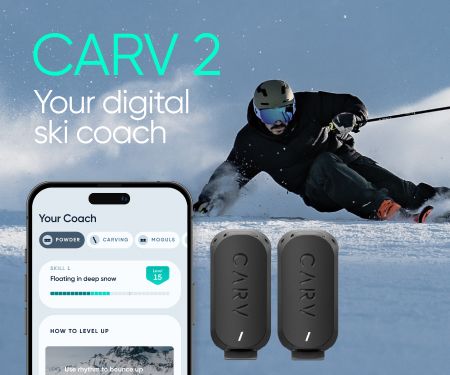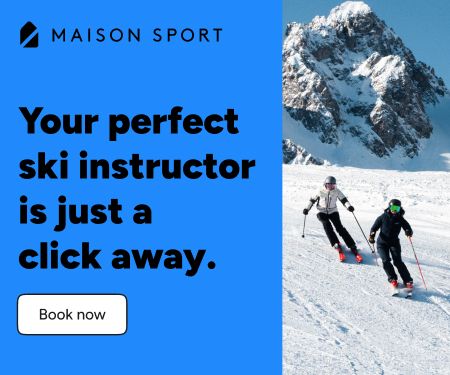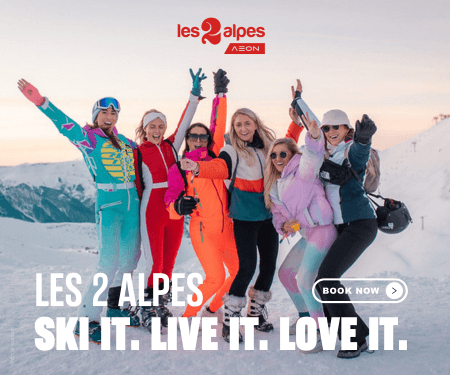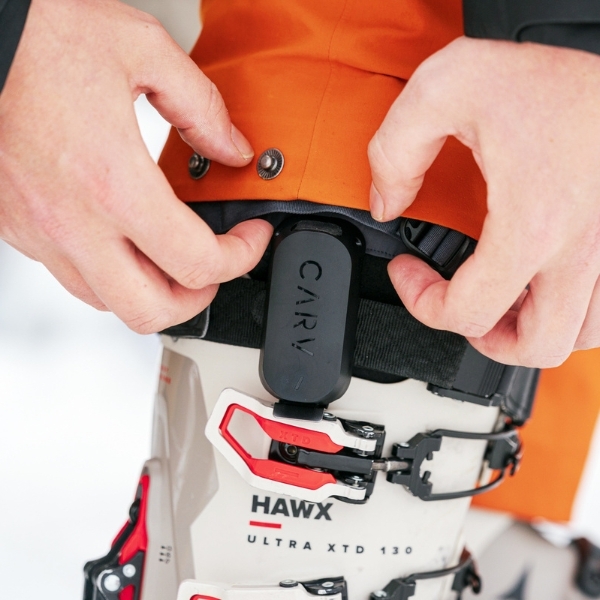
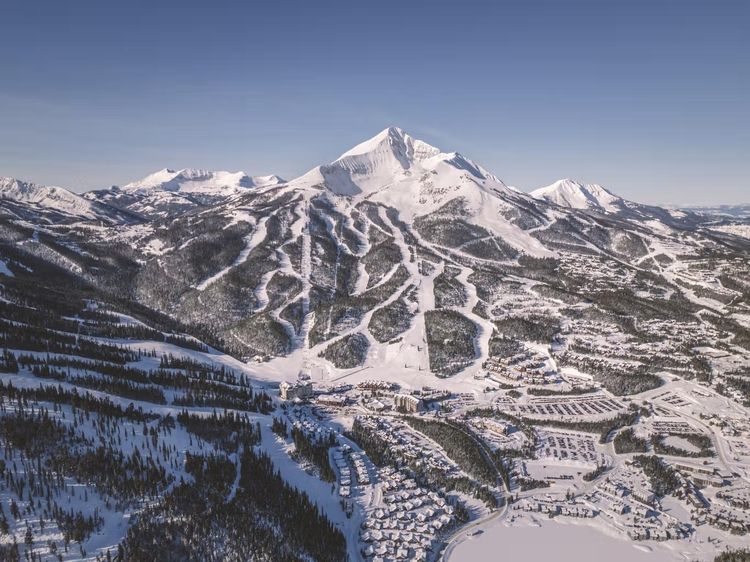
Big Sky Overview
When you think of America’s big hills, the kind that boast 4,000ft+ of vertical drop, you probably think of Colorado. Maybe Utah. But Montana, not so much. Montana is usually the purview of dirtbag skiers and boarders - hills with only a handful of lifts and an après scene of greasy burgers and flat beers.
Bucking that trend, Big Sky has made Montana a destination for powder hounds looking to avoid the over tourism of places like Aspen and Vail. While it flew under the radar for a couple of decades, the resort really burst onto the scene in the early 00s when it was declared the largest ski hill in America after acquiring the adjacent Moonlight Basin Resort. With aggressive expansion at other large American resorts, they didn’t keep the title for long, but the buzz remains with Big Sky attracting over 700,000 visitors each year. They’re also a member of the IKON Pass system, which includes resorts like Aspen, Jackson Hole, Alta, and Killington, which helps to bring in visitors from every corner of the country (and the world).
Our partners
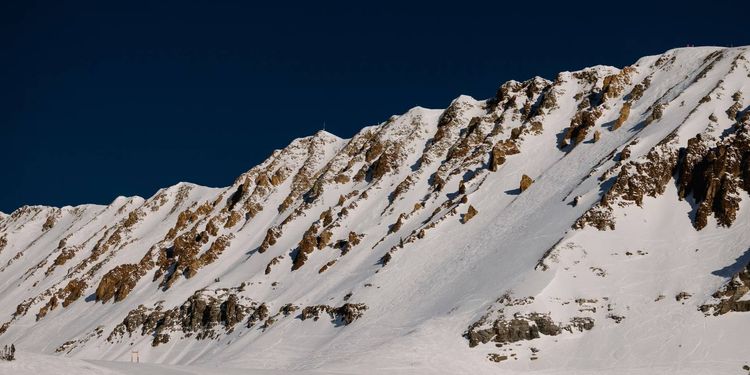
The Skiing in Big Sky
There’s no other way to describe it, a trip to Big Sky is… an experience. Unless you regularly ski at places like Vail or Park City, Big Sky will feel overwhelming. There are nearly 40 lifts spread across three peaks and it’s very easy to get lost.
One of the biggest complaints about Big Sky, and there aren’t too many, is that the mountain feels too big. Spread across a few different peaks, there’s not enough time in the day to enjoy all of them. Even if you spent a week here, you’d be lucky to see half of what this resort has to offer.
That being said, its size and varied terrain are what most people say they love about Big Sky. There’s over 4000’ of vertical, dozens upon dozens of double-black chutes, amazing glade skiing, and some truly epic bowls - it’s every expert skier and boarder’s wishlist come to life. But even if you’re not a lifelong shredder, there are groomers for days here - 40% of the mountain is suitable for beginner and intermediate visitors.
With all their terrain to explore, Big Sky needed to build out one of the most extensive lift systems in America - and they did not skimp… on anything. We’re talking 8-person lifts, with drop-down bubbles shields to keep you nice and toasty even on the windiest days. Speaking of toasty, some of those lifts have heated seats. Doesn’t get much more luxurious than that.
Then there’s the snow. If you’re coming from the coasts or some parts of Europe, you’ll be astonished by the fluffy, dry powder that coats the northern Rockies. Commonly referred to as “cold smoke”, it’s light as a feather and never icy. Big Sky claims over 400” of annual snowfall, but in recent years it’s been a bit under 300”. Not bad, and still plenty of white stuff to cushion the blow of a wipeout. Those favorable conditions make it easier to step up your game and try runs you’d be apprehensive about with lesser-quality snow.
For a truly spectacular Big Sky experience, ride up the Lone Peak Tram, an enclosed gondola that accesses the most difficult, avalanche-prone terrain on the 11,000’ summit. Don’t have the skills to ride those expert-only chutes? You can take a scenic round-trip ride on the tram and then enjoy some beginner-friendly runs all the way back down to the base.
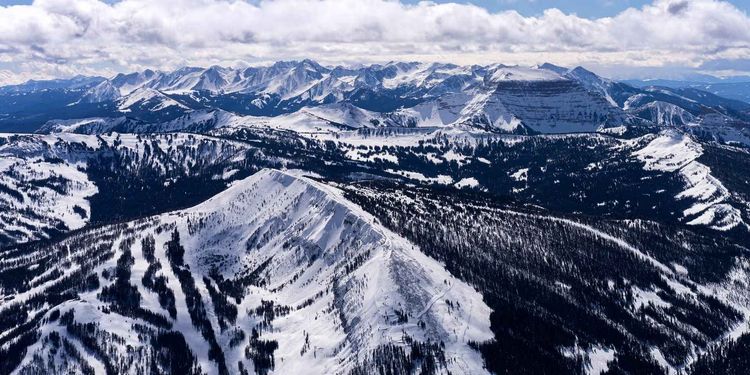
Eating Out in Big Sky
With so many options, figuring out where to eat is one of the biggest problems you’ll face at Big Sky. Yeti Dogs is as dirtbag as it gets here at Big Sky, serving loaded-up hot dogs, beer, and ice cream. It’s a quick meal when you’d rather be tearing up the slopes than waiting for a table. Then there’s Stone Fired Pizza, which you can get by the slice or a whole pie. Open seating out on the deck keeps you within striking distance of fresh powder.
If you’re ready to call it a day, get cleaned up, and put on something besides snow pants, there’s a wealth of options in both the Mountain Village and Big Sky Town Center. Up on the mountain, Chet’s Bar and Grill keeps it fairly low-key with pasta dishes, creative sandwiches, and steak dinners. For more eclectic dining options, head down to the Town Center and grab some green curry at Thai Basil or pho at Big Sky Noodles. On Sundays, you can also even get dinner and a movie at The Waypoint restaurant and cinema, with entrees like pan-seared trout filets and bison steaks.
The Après-Ski in Big Sky
Montana beer culture is simply legendary. With over 100 breweries spread across the state and a dozen or so in nearby Bozeman, you’d be missing out if you didn’t try at least one of their brews while skiing at Big Sky. Midas Crush IPA from Bozeman’s MAP Brewing is an area favorite, but if you crave something even more local, Beehive Basin Brewing is just down the road in the Big Sky Town Center.
Westward Social in the Mountain Village’s main dining center also has a happy hour with $5 beers, including some of those Bozeman microbrews. They offer basic bar foods if you just need a little something to tide you over. If you’re in the market for high-end cocktails, Vista Hall is the place to be. Located on the top floor of the dining center, their Vista Mule with huckleberry-infused vodka is Montana après perfection.
Want to feel like you’re still out on the powder? The Umbrella Bar next to the Summit Hotel is a glass-enclosed circular bar with impressive views of the slopes. It’s only open Friday-Sunday from noon until 7 pm, so make this your pre-dinner hangout after the lifts stop spinning.
Big Sky for Families
Big Sky features some of the biggest and hairiest terrain in the country, but that doesn’t mean it’s also not a great place to strap on a pair of skis or a board for the very first time. Unlike some of the state’s other hills, Big Sky has quite a few beginner runs so you’re not just lapping the same route a dozen or more times before leveling up to the blues.
While many first-timers have reservations about riding the chairlift, Big Sky’s top-of-the-line lifts scoop them up with such a light touch, that it’s like settling into an armchair. The Lone Wolf, Sacajawea, and Lewis and Clark lifts also access areas that are almost entirely beginner-friendly, so there’s little risk of the kids wandering off into terrain they’re not ready for.
Activities for Non-Skiers at Big Sky
Skiing and snowboarding are just one aspect of the Big Sky experience, and if you’re not a fan of either, that’s also not a problem. The resort is a veritable playground of winter activities from dog sledding to ice skating to snowshoeing.
Not even a fan of the snow? That’s fine too. Big Sky’s Town Center, about fifteen minutes down the road from the main lodge, has spectacular shopping that’ll keep the snow-phobic entertained while everyone else is out on the slopes. There’s also no shortage of spas, wellness centers, and fitness studios with yoga and pilates classes should you need a day of rest, relaxation, and deep stretching after all that shredding.
Accommodation in Big Sky
Skiing at Big Sky means you’ll be flying into Bozeman. It’s only an hour’s drive from the resort and has excellent deals on hotels during the winter months. However, Highway 191 which runs between Bozeman and Big Sky, is a two-lane icy nightmare that’s been called “Montana’s most dangerous road”. Fortunately, there is a shuttle between Bozeman and Big Sky via the fare-free Skyline bus line. Save on gas, help out the environment, and maybe make a few new friends before ever hitting the hill.
Accommodations on the hill are considerably more expensive, but you get to wake up an hour or two later and still get those fresh tracks in. The Summit Hotel is just steps from the lift, as is the Village Center Hotel and Huntley Lodge. They lean heavily on the rustic, Montana mountain lodge aesthetic and are ideal for visitors wanting all their skiing amenities - lifts, apres, saunas, and such within arm’s reach.
Environment & Sustainability in Big Sky
Big Sky is owned by Boyne Resorts, a major resort conglomerate with a diverse portfolio of hills including Brighton in Utah, Sugarloaf and Sunday River in Maine, Loon Mountain in New Hampshire, and Snoqualmie in Washington. Being the largest property and consequently the biggest polluter, Boyne has made Big Sky a top priority with their Forever Project setting a goal of zero net emissions by 2030. They hope to accomplish this through a combination of recycling and composting programs, upgrading to more efficient lifts, and by purchasing all renewable-produced electricity.
They’ve also partnered with TradeWater, a carbon-offset organization that calculates the footprint of your ski trip and allows you to fund projects that’ll capture an equivalent amount of CO2.
Pros & Cons of Big Sky.
Pros & Cons of Big Sky
Pros
- More vertical drop than almost anywhere else in America.
- Impressive amenities, like a heated and enclosed 8-person lift.
- Plenty of dining and drinking options.
- Included on the IKON Pass.
- Abundant terrain for any skill level.
- Cold smoke snow that’s the envy of all the East Coast skiers and boarders.
Cons
- An hour from the nearest airport via a treacherous two-lane highway.
- Lone Peak Tram access is not included with IKON Pass.
- Annual snowfall is overstated (over recent seasons)
- Lift areas feel disconnected.
- Lacks the ski bum vibe of other Montana ski areas.
Recent Reviews
It has a lot of terrain and lots of variation in difficulty. It was early in the season and a little low tide, and as it is quite rocky terrain we found a few "sharks" on the runs. We were told the best time of year to visit is March as they have usually had a lot more snowfall and it covers the sharp rocks well.
The on mountain venues were really lovely, not always the same chips and pizza but some good food and nice selection of wines available.
Also the apres tent at the base was so much fun for a champagne and a dance at the end of a day on the hill.
100% will be back again soon!
Big Sky Resort Stats
Big Sky Travel Information
FAQs Skiers' Most Asked Questions
Big Sky FAQs: Skiers' Most Asked Questions
Is Big Sky snow-sure?
Big Sky offers reliable snow conditions with its high elevation (3403m at the peak) and significant annual snowfall. While no resort is 100% guaranteed, our Snomad users consistently praise the snow quality. As Randy, an expert skier, puts it: "Great skiing and tons of snow!" The resort scores well for powder zones (4.38/5)). Some early or late season variability can occur, but the mountain's size allows for good skiing even during less optimal conditions.
What mountain range is Big Sky part of?
Big Sky Resort is located in the Madison Range of the Rocky Mountains in southwestern Montana. This stunning range is part of the Greater Yellowstone Ecosystem, offering dramatic peaks and expansive terrain. Our users frequently mention the breathtaking mountain vistas, with one Snomad community member describing it as "the Alps of America" with its beautiful views and impressive vertical drop.
When does the ski season start and end in Big Sky?
Big Sky's ski season typically runs from late November to mid-April, depending on snow conditions. Our users report that early season can have limited terrain open, but the resort makes efforts to expand quickly with snowfall. A Snomad community member noted that despite visiting during low snow periods, they still found the experience enjoyable thanks to excellent grooming that "stayed consistent throughout the day."
Is Big Sky good for beginners?
Big Sky is excellent for beginners, scoring 4.60/5 for beginners. The resort offers 48 beginner runs spread across its vast terrain. Amanda, a beginner snowboarder, loved it for "multiple sides of the mountain to explore, so many runs for all experience levels." Rui mentions it's "great for families as you always find something for everyone." The modern lifts with heated seats are particularly beginner-friendly, and the ski school receives high marks at {{RATING_SKI_SCHOOL_QUALITY}} for quality.
Is Big Sky good for intermediate skiers?
Big Sky is fantastic for intermediates, scoring 4.30/5 for intermediate skiers. One Snomad community member highlighted the "great variety of terrain" with over 79 intermediate runs across the massive 5,850 acres. The high-speed lifts with heated seats get rave reviews, and the wide, well-groomed blues are perfect for building confidence. While it's pricey, most users agree the extensive terrain and modern lift system make it worth splashing out for intermediate skiers looking to progress.
Is Big Sky good for advanced skiers?
Absolutely! Our Snomad users consistently rate Big Sky as exceptional for advanced skiers with a rating of 4.14/5. The massive terrain offers challenging runs that'll push your limits. One user who's an expert skier called it "the Alps of America" with "some of the steepest inbound runs in the world." With over 130 advanced runs spread across 5,850 acres, you'll find endless opportunities to test your skills on varied terrain, especially off the new tram and in the renowned bowl area.
Is Big Sky good for expert skiers?
Absolutely! Big Sky Resort is exceptional for expert skiers, scoring 4.44/5 for experts. Our users rave about the challenging terrain, with David describing it as having "some of the steepest inbound runs in the world." The resort offers extensive off-piste options and what Mike calls "high level steeps." The new tram provides access to triple black runs that Randy calls "awesome." Just be aware that tram access requires additional payment beyond your lift ticket.
Is Big Sky good for non-skiers?
Big Sky offers limited non-skiing activities compared to its impressive ski terrain. While the village has restaurants and shops, several Snomad users note that après and entertainment options are minimal. Michael, a non-skier, mentions "good prices and helpful people," and the resort does feature activities like the Enchanted Forest. However, with its focus on skiing, non-skiers might find Big Sky less engaging than other destination resorts.
Is there snow at Christmas in Big Sky?
Big Sky typically has good snow at Christmas. Our users report that it's a reliable destination for festive skiing despite some noting occasional low snow years. The resort boasts a high elevation (3403m at the top), which helps maintain conditions. While weather can vary, the Montana mountains usually deliver a proper white Christmas. One Snomad community member mentioned that even in a low snow year, they still had an enjoyable experience on the well-groomed runs.
Where should I stay in Big Sky and what type of accommodation is available?
Big Sky offers several distinct accommodation areas. Mountain Village provides slope-side convenience with luxury hotels and condos - perfect for those wanting immediate mountain access. Meadow Village, about 15 minutes from the slopes, offers more affordable options and a laid-back atmosphere. For upscale experiences, Spanish Peaks and Moonlight Basin feature high-end homes and lodges. One Snomad community member mentioned, "There are plenty of places to stay near the slopes," while another noted the "great options for accommodations off resort and close to Bozeman."
ChatGPT: Big Sky offers several distinct accommodation areas. Mountain Village provides slope-side convenience with luxury hotels and condos - perfect for those wanting immediate mountain access. Meadow Village, about 15 minutes from the slopes, offers more affordable options and a laid-back atmosphere. For upscale experiences, Spanish Peaks and Moonlight Basin feature high-end homes and lodges. One Snomad community member mentioned, "There are plenty of places to stay near the slopes," while another noted the "great options for accommodations off resort and close to Bozeman."
What's the best way to get to Big Sky?
Most international travellers fly into Bozeman Yellowstone International Airport (BZN), which has connections to major US hubs. From there, it's about a 1-hour drive to Big Sky Resort. You can rent a car, take the Skyline shuttle service, or arrange a private transfer. Our users mention the journey is straightforward despite the resort's remote location, with Ethan noting that the relatively easy access is part of what makes Big Sky special.
ChatGPT:
Most international travellers fly into Bozeman Yellowstone International Airport (BZN), which has connections to major US hubs. From there, it's about a 1-hour drive to Big Sky Resort. You can rent a car, take the Skyline shuttle service, or arrange a private transfer. Our users mention the journey is straightforward despite the resort's remote location, with Ethan noting that the relatively easy access is part of what makes Big Sky special.




